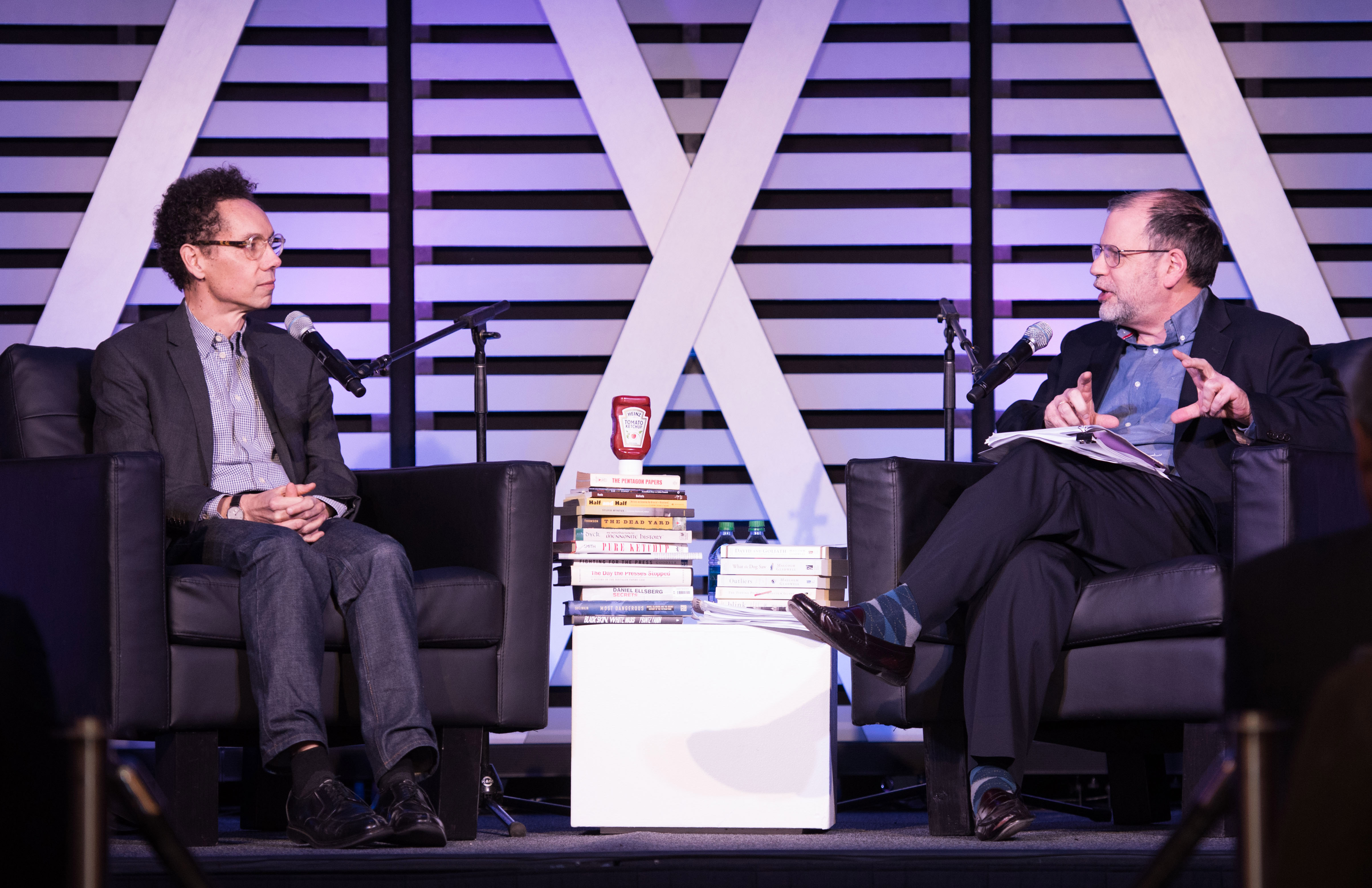
Malcom Gladwell talks with Tyler Cowen Monday, Feb. 27 during Conversation with Tyler. Photo provided by Caren Louise Photographs.
What would Malcolm Gladwell do if he were in charge of higher education policy?
For starters, he would spend endowments down to zero, increase faculty salaries, institute a lottery targeting what he calls “motivated true scholars” for admissions, “triple or quadruple” the size of the schools, open campuses overseas and, for elite schools, ban graduates to ever say what school they attended.
And if college is truly a place where students are to explore the world, he said, his voice rising, “parents should send their 17-year-olds to places the world can be explored,” and not the ivy-covered confines of schools filled with people just like them.
An appreciative crowd of about 400 applauded Gladwell’s sentiments Monday night at an Arlington hotel ballroom. The 90-minute discussion was part of “Conversations with Tyler,” a series in which George Mason University’s Tyler Cowen, general director of George Mason’s Mercatus Center, invites thought leaders on stage to discuss their ideas as well as what in their backgrounds shaped their lives.
Gladwell is a best-selling author best-known for his books including, among other writings, “The Tipping Point: How Little Things Can Make a Big Difference,” and a popular 2004 essay in the New Yorker called “The Ketchup Conundrum” that introduced Gladwell’s style of social scientist-meets-journalist to a wider audience.
Cowen, who admitted his preparation for the interview included otherwise unavailable material “leaked” to him by longtime friends of Gladwell, explored the origins of Gladwell’s intellectual development, beginning with his Jamaican-born mother and England-born father.
“I really like to tell stories, that’s what I like to do most,” Gladwell said. “And that’s not a product of my background, it’s a reaction to it. My parents were terrible storytellers.”
Apparently, it was up to young Malcolm to carry the conversation around the dinner table, despite his not-very-talkative mother being a psychotherapist and his father being a university mathematics professor.
As for his writing topics, the trim 53-year-old explained his “risk-adverse” philosophy of picking “the easiest things to write about that no one else wants to cover … How hard is it to call up people who make ketchup and ask to do a story about it? Of course they say yes.”
Cowen asked if anyone at elite universities had responded to a podcast Gladwell recently recorded that admonished anyone giving money to a school with an endowment larger than some countries gross domestic products, equating it to throwing money away.
“No, not really,” he replied, underscoring his reluctance to donate to big endowments because “you’re giving someone $1 and they’ll promise to spend five cents.” A better idea, he said, is to spend the endowment to zero and invest in long-term infrastructure and programs.
